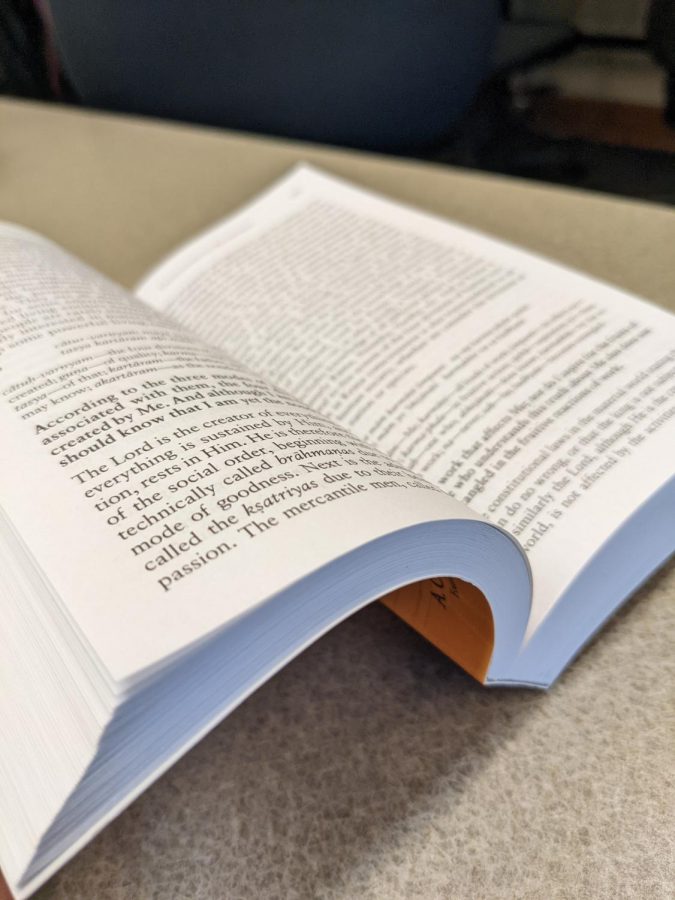CAH hosts presentation on intersection of literature and human rights
Literature intersects with human rights.
January 26, 2023
Dr. Richard Middleton-Kaplan gave a Zoom presentation on Jan. 17 titled “Humanity in Print: Literature and Human Rights,” during which he shared stories of human rights activists he encountered throughout his career, discussed how literature played a powerful role in their lives and illuminated how lessons learned through literature can be applied in student lives.
The presentation was part of the “Storytelling for Identity and Belonging” series hosted by CWU and sponsored by the College of Arts and Humanities and Humanities Washington. The presentation began with an acknowledgment of indigenous land statement and an introduction by CWU professor Xavier Cavazos and ended with an audience discussion.
In Cavazos’ introduction he said, “What these activists endured was shocking, yet they found meaning and beauty in literature, and so can we. In this talk, audiences will discuss literary works that illuminate how to respond to those around who have suffered human rights violations, and those who have committed incomprehensible acts. These works can even help us to make sense of the wrongs that we ourselves have endured.”
In an interview, Kaplan said his previous work studying war and Holocaust literature as well as peace-focused literature at Harper College eventually led him to share this type of material.
According to Kaplan, literature “is confronting what it means to be human, and that includes all the extremities of the human experience, from the most ecstatic to the most agonizing.”
Kaplan described a scenario where a journalist in Iraq named Achmed was targeted and threatened to be murdered by Al Qaeda during anti-literature, anti-journalism movements in the Arab world.
“If literature can still bring meaning and beauty and joy into the life of somebody who’s experienced what Achmed has, then there must be something really important going on in there…beyond the great pleasure we derive from it,” Kaplan said.
In the presentation, Kaplan discussed several different works of literature, including “The Night Watchman” by Louis Erdrich. He used this novel as one of the many examples of literature that can help people understand others and promote action for human rights.
“One of the remarkable things about this novel … is that it gives a description of the hardship of life in a way that helped me understand and empathize with what it would be like to be on a reservation in Minnesota in the 1950s,” Kaplan said.
Kaplan said it’s not always a comfort to think about how others in the world have worse situations in life than he does, yet literature is a common thread between their struggles.
“Knowing that other people have come to terms through literature with suffering, or even if they’ve arrived at a sense of meaninglessness and nihilism and that matches where I am, then I can find some solidarity and some meaning,” Kaplan said.
Kaplan said human rights belong to everybody simply “by virtue of being human.”
“How do we begin to honor [human rights] in other people?” Kaplan said. “We don’t if we see them as savage or as vermin, like the nazis did the Jews, or cockroaches like the Hutus did the Tutsis in Rwanda, or not fully human as we viewed slaves, or savage as we viewed Native Americans, or any of the other ways in which people are lumped together in categories and dehumanized.”
Kaplan said engaging in this categorization makes violence not only a possibility, but an inevitability.
Attendee Hope Samudio, a student double majoring in Communications and Apparel Textiles and Merchandising, said, “Overall I found this a very useful presentation. It helped honor, in a sense, people and events who have been forgotten by providing a background on important literature that shares their stories and is often overlooked or even banned from libraries.”


